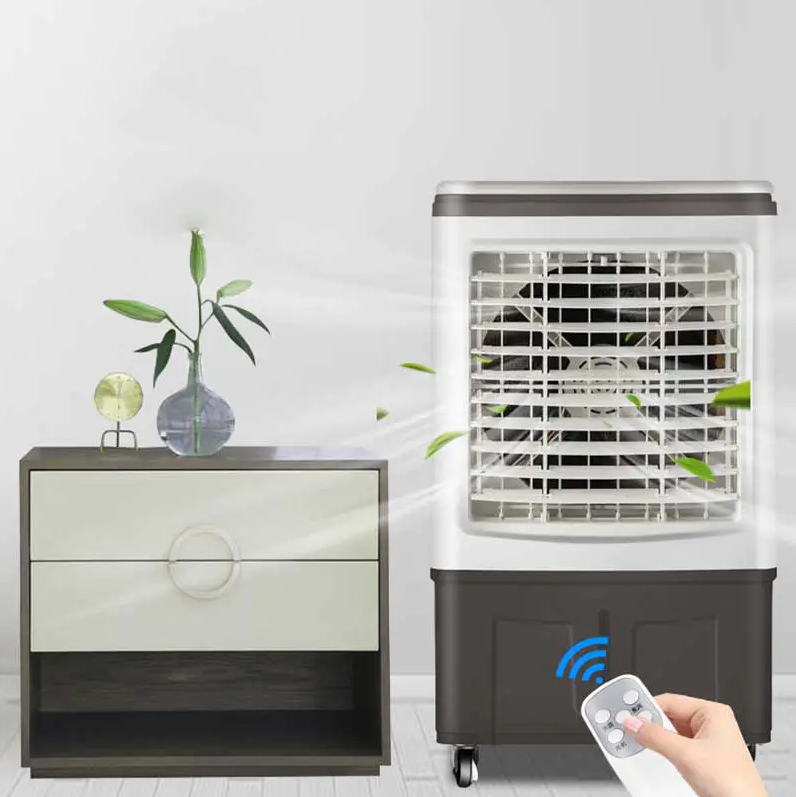Content
With summer temperatures continuing to rise, choosing an economical and efficient cooling solution has become a hot topic. Among the many options, evaporative air coolers and traditional air conditioners are the two main choices. To determine whether Evaporative Air Cooler are "better" than air conditioners, we must delve into their cooling principles and practical application scenarios.
I. Fundamental Differences in Cooling Principles
Evaporative Air Cooler and air conditioners differ fundamentally in their operating methods:
Air Conditioner: Uses a refrigerant cycle to forcibly transfer indoor heat to the outdoors through thermodynamic circulation, achieving precise temperature control and dehumidification.
Evaporative Cooler: Follows the principles of physics, relying on water evaporation to absorb heat. When air flows through the moistened filter of the evaporative cooler, the water evaporates, carrying away heat and thus achieving cooling. This is an environmentally friendly and energy-saving cooling method.
II. Multi-dimensional Comparison of Performance and Applicability
By comparing key performance indicators, we can clearly see the advantages and limitations of evaporative air coolers:
Cooling Capacity and Environmental Dependence:
The cooling effect of evaporative air coolers is significantly affected by ambient humidity. In dry areas, their cooling effect is obvious, providing a cool feeling; however, in high humidity environments, the cooling effect is reduced, and it may even make people feel stuffy.
Air conditioners, on the other hand, have a highly stable and controllable cooling effect, precisely maintaining indoor temperature.
Energy Consumption and Economy:
One of the biggest advantages of evaporative air coolers is their extremely low energy consumption, typically only a fraction of that of traditional air conditioners, making them very energy-efficient and environmentally friendly.
Air conditioners have relatively high energy consumption, especially when used for extended periods, resulting in higher electricity costs.
Air Quality and Comfort:
Evaporative air coolers continuously introduce fresh air from outdoor ventilation and increase indoor humidity, which is beneficial for improving indoor air quality and user comfort.
Air conditioners typically operate in enclosed spaces, circulating air internally. While some high-end models offer fresh air intake, their core function remains closed-loop cooling.
Installation and Mobility:
Evaporative air coolers are generally flexible and convenient. Many models require no professional installation; simply adding water is sufficient for operation, making them easy to move.
Air conditioners require professional outdoor unit installation and ductwork connections.
III. When is an Evaporative Air Cooler the Better Solution?
In summary, evaporative air coolers are not universally superior to air conditioners, but rather a "better solution" in specific scenarios:
High Energy Efficiency Needs: For users requiring large-area cooling (such as workshops and shops) and prioritizing energy-efficient and environmentally friendly operating costs, evaporative air coolers are the first choice.
Suitable Climate Conditions: In areas with dry air and a need for humidity replenishment, the environmentally friendly and energy-saving cooling and humidifying effects of evaporative air coolers are unmatched by air conditioners.
Ventilation Requirements: When the space requires continuous ventilation and is unsuitable for prolonged closed operation, evaporative air coolers are more popular due to their ability to introduce fresh air.
 English
English 中文简体
中文简体 عربى
عربى Tiếng Việt
Tiếng Việt



 CONTACT US
CONTACT US